China announced its carbon peak and carbon neutrality goals at the 75th Session of the United Nations General Assembly in 2020. It has become a major task in China to improve energy efficiency and reduce carbon emission intensity in industries, especially in key sectors. Guests from the academia and the industry shared their views on “the development of green finance under carbon peaking and carbon neutrality goals” at plenary session II, 2022 Tsinghua PBCSF Global Finance Forum.
JU Jiandong, chair professor at Tsinghua PBCSF and Director of Center for Green Finance Research, NIFR, presided over the session.
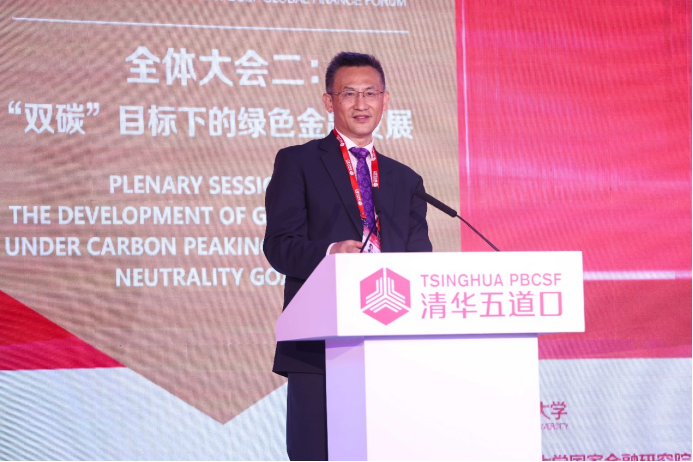
Ju Jiandong
ZHU Min, Chair of NIFR and former Deputy Managing Director at International Monetary Fund (IMF), made the keynote speech, titled "Building Zero-Carbon Road in China and Practicing the Road of Financial Development with Chinese Characteristics". He said that carbon neutrality is a paradigm change that will transform productivity and our daily life. Carbon neutrality aims to align the capital factors in global development, namely physical, human, social and natural capital, leading to a new development pattern - zero-carbon development. While countries in the world are exploring new development patterns, China has the opportunity to take the lead in finding a zero-carbon development model and contribute global prosperity. “China's financial sector should seize this opportunity to build a zero-carbon financial system while supporting the real economy.” said ZHU Min.
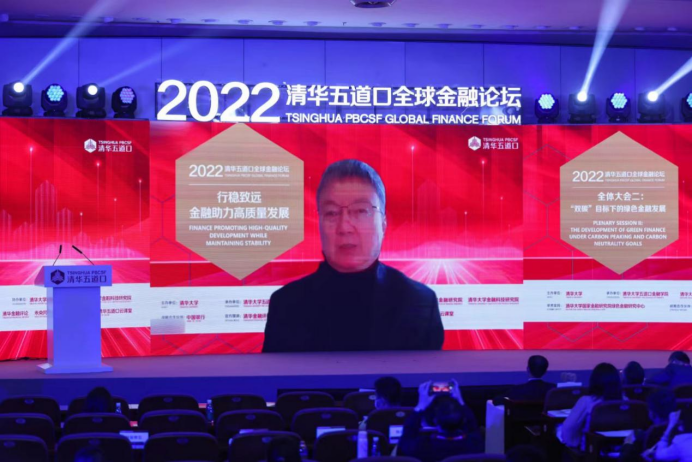
Zhu Min
At the roundtable discussion, five panelists were invited to share their views on "Zero-Carbon Finance Road to China in Actions".
Wang Xin, Chief-Director of Research Bureau of the People’s Bank of China, introduced PBC’s research on "macro-financial policies to protect biodiversity and cope with global change". Presently, green finance in China is more about responding to climate change and less on biodiversity protection, where more attentions should be paid, as the climate change and biodiversity are interrelated. The relevant policies must address both issues. The central bank has been promoting macro and micro risk stress tests in order to prevent systemic financial risks that caused. “Only by effective financial systemic risk management can we ensure a long-term stable financial development.” Wang Xin said.
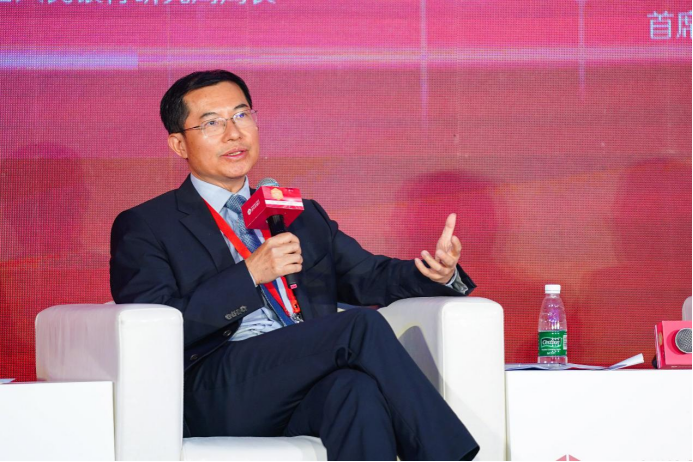
Wang Xin
ZOU Ji, CEO & president of Energy Foundation China, said that environmental protection and emission reduction have become one of the important factors supporting economic growth. “China has achieved $12,000 per capita in GDP. In the industrial market, the policy goals of economic growth, environmental protection, energy security and climate change have become more converged." Zou Ji stressed that energy security in China is to move towards renewable energy through energy structure adjustment. During the 14th Five-year Plan period, China will invest 44.5 trillion yuan in related fields. The important method to guide the investment is to formulate dual-carbon investment policies and give full play to the market mechanism. “The basic logic is to make green investment profitable.” Said ZOU Ji.
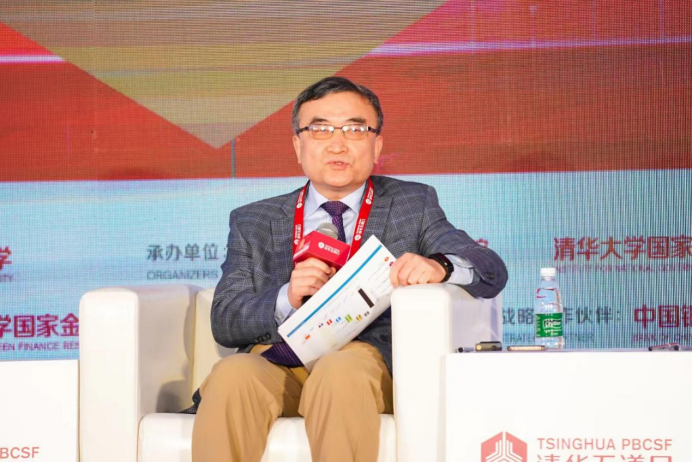
Zou Ji
TAN Congyan, Vice-President of China Institute of Finance and Capital Markets, shared his thoughts on establishing a zero-carbon financial information disclosure system. Information disclosure is the key in green finance transactions. “Information disclosure is critical for the market mechanism, investor decision making, regulator supervision, and for a standardized platform." As countries compete to participate in the policy making in information disclosure, they are exploring to seize the opportunity toward the future. China has the advantage of having an early start. Overall plan should be made from four aspects: 1. participation in the formulation of international standards, 2. consistency with national conditions; 3. effective integration of old and new systems; 4. clarity of information disclosure purpose." Information disclosure actually involves an ecosystem of enterprises, regulators and intermediaries, including law firms, audit firms, and etc., which requires a supporting system- an important research subject for the industry and academics." Said TAN Congyan
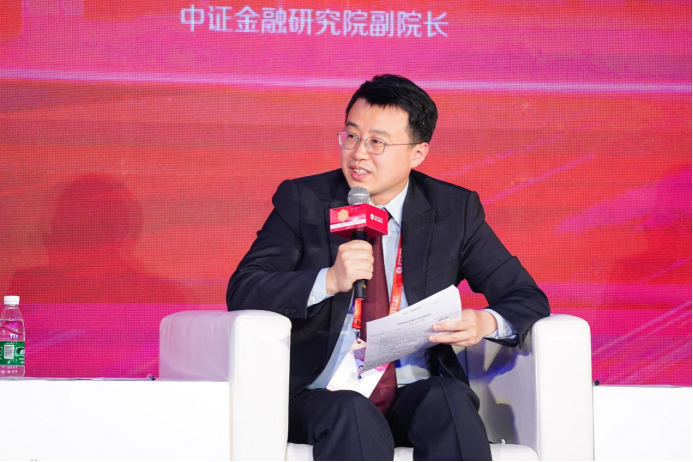
Tan Congyan
He Ping, Associate Dean at Department of Finance of School of Economics and Management, Tsinghua University, shared his thoughts and recent research on “how green finance achieves market-oriented development”. Green finance is a market-oriented tool to achieve the dual-carbon goal. Only under the guidance of government policy, can the market-oriented green finance pricing mechanism be fully motivated for a standard financial product. To achieve this goal, it requires actions from two perspectives: first, establish a unified carbon trading market; second, establish a perfect transaction accounting system.
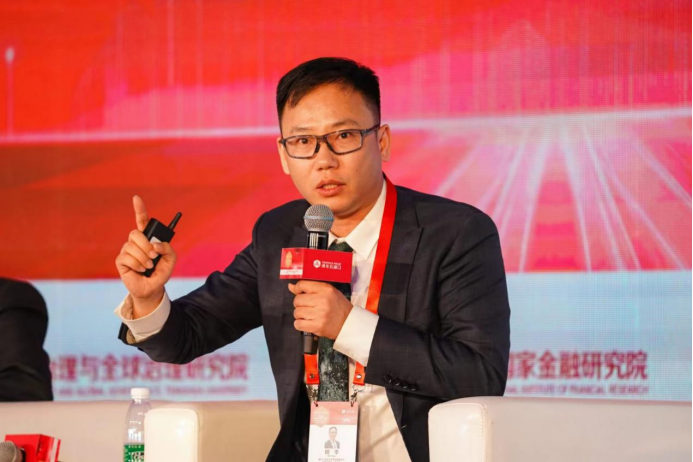
He Ping
Zhang Xiaoyan, Chair Professor and Associate Dean at Tsinghua PBCSF, addressed three issues with three internationally recognized academic papers: 1. under similar conditions, investors shall prefer green investment; 2. green bonds have been recognized by investors and have helped companies reduce carbon emissions; 3. large institutional investors encourage companies to reduce carbon emissions through equity investment. The current green finance investment and financing system is divided into three categories: the green financing system, namely the demand side of financing; the trading place of green finance, including the exchange, OTC, primary and secondary markets; and investment demand, the qualified investor. We need to increase the engagement of the factors from the three categories. On the investment side, we need to promote the education of all investors and nurture the power of institutional investors. On the financing side, we need encourage investors to improve their environmental performance. As for trading platform and regulators, we need to establish a sound green market service system and implement policies on green financial investment and financing as soon as possible. Zhang Xiaoyan expressed her confidence in building an efficient green investment and financing system/mechanism to achieve effective resource allocation and dual-carbon goals.
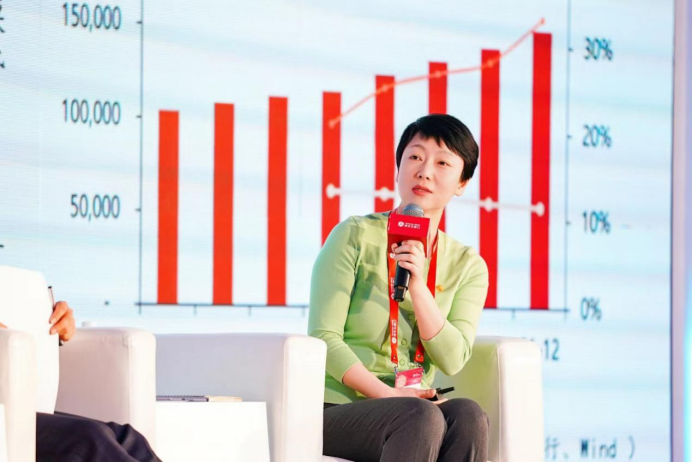
Zhang Xiaoyan
In free discussions, a debate over “information disclosure" was carried out. He Ping argued that in order to ensure the investment turnover is visible and transparent, the disclosure of carbon emission cost should be required, while Zou Ji disagreed that forcing enterprises to disclose cost information may lead to false account. The followed discussions were carried around the issue, including to explore the academic theory that guides industrial practice and the rationality from the perspective of industrial practice.
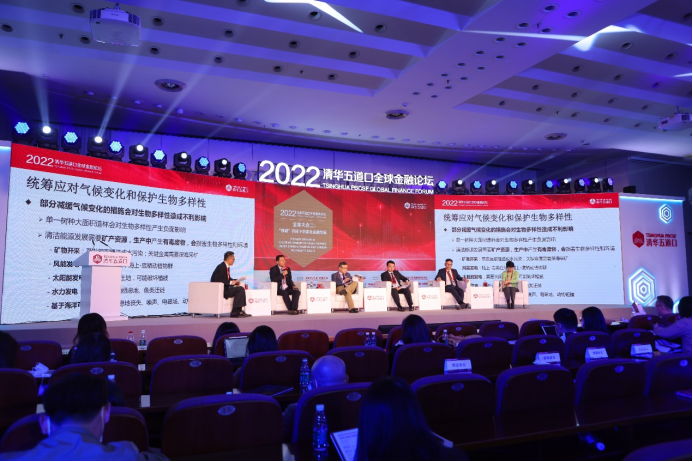
Guest Discussion
The 2022 Tsinghua PBCSF Global Finance Forum is hosted by Tsinghua University, organized by Tsinghua PBCSF, Institute for National Governance and Global Governance, co-organized by Tsinghua University National Institute of Financial Research (NIFR), and Tsinghua University Institute for Fintech Research (THUIFR). The plenary session II is supported by Center for Green Finance Research, NIFR.